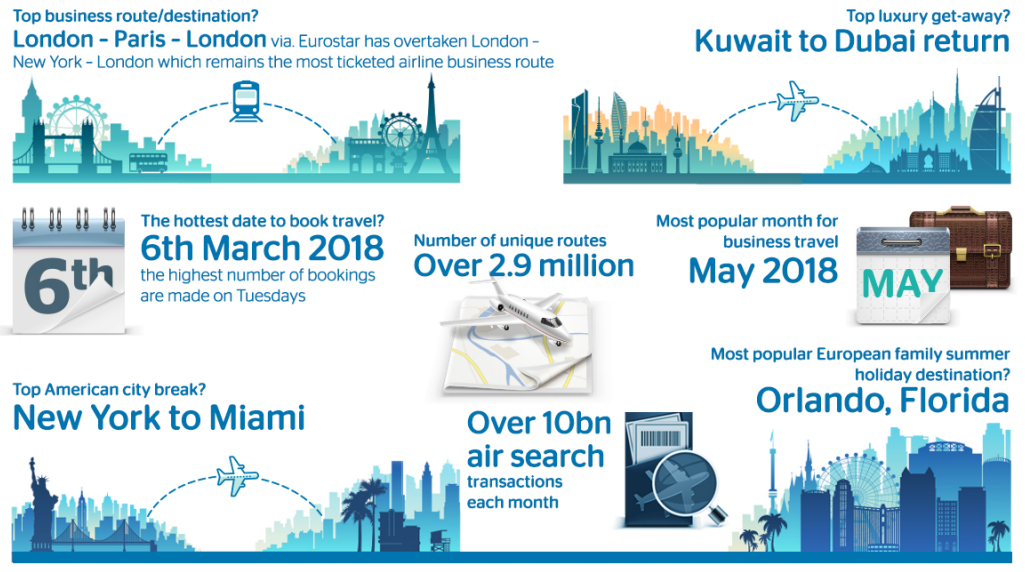Summary:
- India heads Travelport's 2018 Digital Traveller League Table for a second successive year as home to the world's most digitally-advanced travellers;
- The standings are based on a combination of the main indicators of using technology to enhance the travel experience from its 2018 Global Digital Traveller Survey;
- The survey highlights the vital role of mobile devices and growth of new technologies, such as voice search, e-payment and digital room keys with digital travellers.
The 2018 Digital Traveller League Table included within the release identifies the world's most digital savvy travellers and is based on responses to the most digital-focused questions included in the survey, including use of voice search, making bookings via mobile, use of apps and using digital tools while travelling.
The standings are based on a combination of the main indicators of using technology to enhance the travel experience and India's top position has been maintained due to 69% of the country's travellers using voice search, over 60% wanting digital room keys, 71% avoiding hotels that charge for WiFi and 88% saying they are influenced to travel by friends on social media. The findings show that on average Indian travellers use 13 apps during a trip and over 80% said digital boarding passes and e-tickets make travel easier.
"India has grown around the smartphone and its no surprise to see Indian travellers remain the most digitally engaged," says Mark Meehan, managing director APACMEA, Travelport. However, interestingly the survey found that while mobile booking levels are growing, Indian travellers - like most other countries - still favour computers for bookings. Over 85% said they book their travel online via a computer, rather than tablet (28%) or mobile (48%).
After India, the top four ranked countries remain the same as from 2017, albeit have moved position. Indonesia has moved up from third to second, Brazil from fourth to third, with Indonesia slipping from second to fourth. Nigeria is a new entrant into the ranking in fifth, joined by Turkey in seventh. United Arab Emirates (UAE) has risen from eighth to sixth, while Saudi Arabia has slipped from fifth to eighth. Colombia remains ninth, while South Africa is tenth, having slipped from seventh position in 2017. Singapore, Argentina, South Korea and Hong Kong are new entrants to the ranking and hold positions from 11th down to 14th.
"India, Indonesia and Nigeria all have large, young populations of 'digital natives'," highlights Mr Meehan, who notes that companies that want to do business in these nations need to understand how digitally advanced the country is and meet the travellers in the digital platforms they're already using, like instant messaging apps and social media, to provide the seamless, integrated experience travellers want.
Travelport's Global Digital Traveller Research was developed by the company's market intelligence team and carried out online through Toluna Research in Aug-2018. The research covered 25 countries and surveyed people who had taken at least one round trip flight last year. The findings from world travellers suggest mobile devices are as vital for travel as for other aspects of their life whilst the desire for new technologies, such as voice search, e-payment and digital room keys, to simplify and enhance their travel experience is increasing.
IMAGE - Using its own ticketing data for the year ending Sep-2018, Travelport has analysed the top travel trends Source: Travelport 2018 Global Digital Traveller Survey
Source: Travelport 2018 Global Digital Traveller Survey